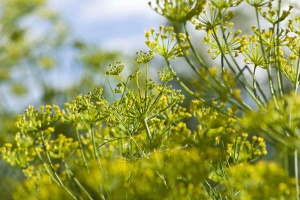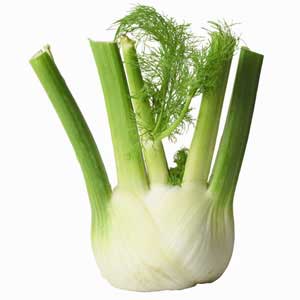Fennel
Contents
Origin & Description
Fennel originated in Southern Europe, particularly in the Mediterranean area. It is also widely cultivated in southwestern Asia, India, China and Egypt. It is a feathery-leaved perennial which belongs to the carrot family, and grows very well in most soils with full or partial sun, and is also tolerant of dry conditions.
These plants are known to have large deep roots and bulbous leafstalks, which are commonly used as a vegetable. In summer season, the Fennel plant is adorned with small golden-yellow flowers arranged in umbrels of 20-50 flowers each. Once the flowers are gone, straw-colored elongated seeds appear which are key for creating future plantings of this valued plant of nature.Other names for this herb are feoniculi fructus, Florence fennel, wild fennel, large cumin, sweet cumin, sweet fennel, fenkel and fennel fruit.
Actions
Fennel can be effective as an antacid, anti-inflammatory, anti-spasmotic (prevents or relieves spasms), aromatic (contains volatile essential oils which aid digestion and relieve gas), carminative (relieves intestinal gas and distension), diuretic (increases the secretion and flow of urine).
This herb also acts as an emmenagogue (facilitates and regulates menstrual flow), expectorant (loosens and removes phlegm from respiratory tract), galactagogue (promotes the flow of milk), parasiticide (kills parasites or worms), stimulant (increases internal heat, strenghtens metabolism and circulation), stomachic (strenghtens stomach function) and tonic (restores, nourishes, supports and strenghtens entire body).
For medicinal purposes, the leaves, stems and seeds of the plants are used.
Medicinal Uses
Fennel is a rich source of vitamin A, and therefore very useful in alleviating light sensitivity and improving night vision. It also assists in the prevention on snow-blindness from bright light reflections on snow, especially in sunlight.
This herb is well known for improving digestion, quieting hiccups and preventing nausea. Its ability to break down uric acid in the tissues helps eliminate gout. It aids in the digestion of protein wastes and clears mucus from the liver and lungs. Fennel has also been known to help break up the formations of kidney stones.
Fennel tea is very effective as a breath freshner and gargle. This herb has also been used historically as a soothing eyewash. It's beneficial as an appetite suppressant, and alleviates hunger pains. It cleanses the gall bladder, liver and kidney, and is helpful for cancer patients who have undergone radiation and chemotherapy treatments. Following are some conditions that are improved with the use of Fennel.
- Appetite (suppresses)
- Asthma
- Cholesterol (lowers)
- Colic
- Colds
- Coughs
- Digestion (sluggish)
- Gallbladder problems
- Gout
- Indigestion
- Jaundice
- Kidney Stones
- Lactation (increases)
- Liver (detoxifier)
- Spleen problems
- Uric acid
- Urination (increases)
- Weight reduction
Culinary & Other Purposes
The leaves, stems and seeds of Fennel have a mild Aniseed flavor. This herb is very popular when used as flavoring in fish and vegetable dishes, stuffings, cakes, breads and fruit pies.
The oil of Fennel is what give the unique flavor to the liquer Pernod. It is also used in various cosmetics and perfumes.
Side-Effects
Excessive use of this herb may disrupt the nervous system. Some individuals may experience vomiting or nausea when using Fennel.
Photo dermatitis or photo-sensitivity to sunlight may be a side-effect of this herb.

